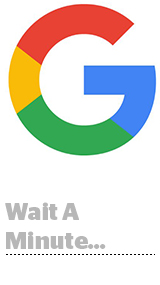 Here’s today’s AdExchanger.com news round-up… Want it by email? Sign up here.
Here’s today’s AdExchanger.com news round-up… Want it by email? Sign up here.
The Other Giant
Google deserves some of the flack that Facebook is almost exclusively catching in the wake of its Cambridge Analytica scandal, writes Christopher Mims for The Wall Street Journal. Mims argues that Google has lax standards for merging data between its various products, from Google Analytics to its ad marketplaces to PII on logged-in users. On mobile, Android has much looser privacy policies than Apple’s iOS. “We think there are enormous issues with YouTube and privacy and Google more broadly,” Josh Golin, executive director of the Campaign for a Commercial-Free Childhood, told Digiday. “The conversation has been so focused on Facebook and is an important conversation, but it’d be a mistake if we saw Facebook as one bad actor.” Meanwhile Facebook published an earnest blog post: Hard Questions: What Information Do Facebook Advertisers Know About Me?
That’s Not My Name
Martin Lewis, a fiscal expert and British TV presenter, is suing Facebook for defamation after the platform repeatedly failed to remove fake ads featuring his name and face. The ads led to fraudulent cryptocurrency schemes run by binary trading firms under names like Bitcoin Code and Cloud Trader, The Guardian reports. But more than Lewis’ reputation is at stake in this case. If Lewis wins, the UK will effectively establish its jurisdiction over Facebook as a publisher. “It is consistent; it is repeated,” Lewis said of the ads. “Other companies such as Outbrain, who have run these adverts, have taken them down. What is particularly pernicious about Facebook is that it says the onus is on me, so I have spent time and effort and stress repeatedly to have them taken down.” More.
To Err Is Human
The programmatic industry still can’t shake human bias and error from media plans. Bias “finds its way into everything – from software algorithm code to strategic channel decisions and individual creative choices,” writes Gil Snir, Bench commercial chief at Mumbrella. If it were easier to quantify the effects of bias on creative and media decisions, Snir says, it would be a bigger problem than ad fraud. And, hey, take ad fraud: where ads.txt tripped up some publishers and exchange vendors due to misspellings. More.
But Wait, There’s More!
You’re Hired!
This post was syndicated from Ad Exchanger.

More Stories
Together reports for media and data duties at Inghams
The Real Reasons Why CMOs Get Fired
Hook, line, and sinker: KFC’s fish & chip shop a hit